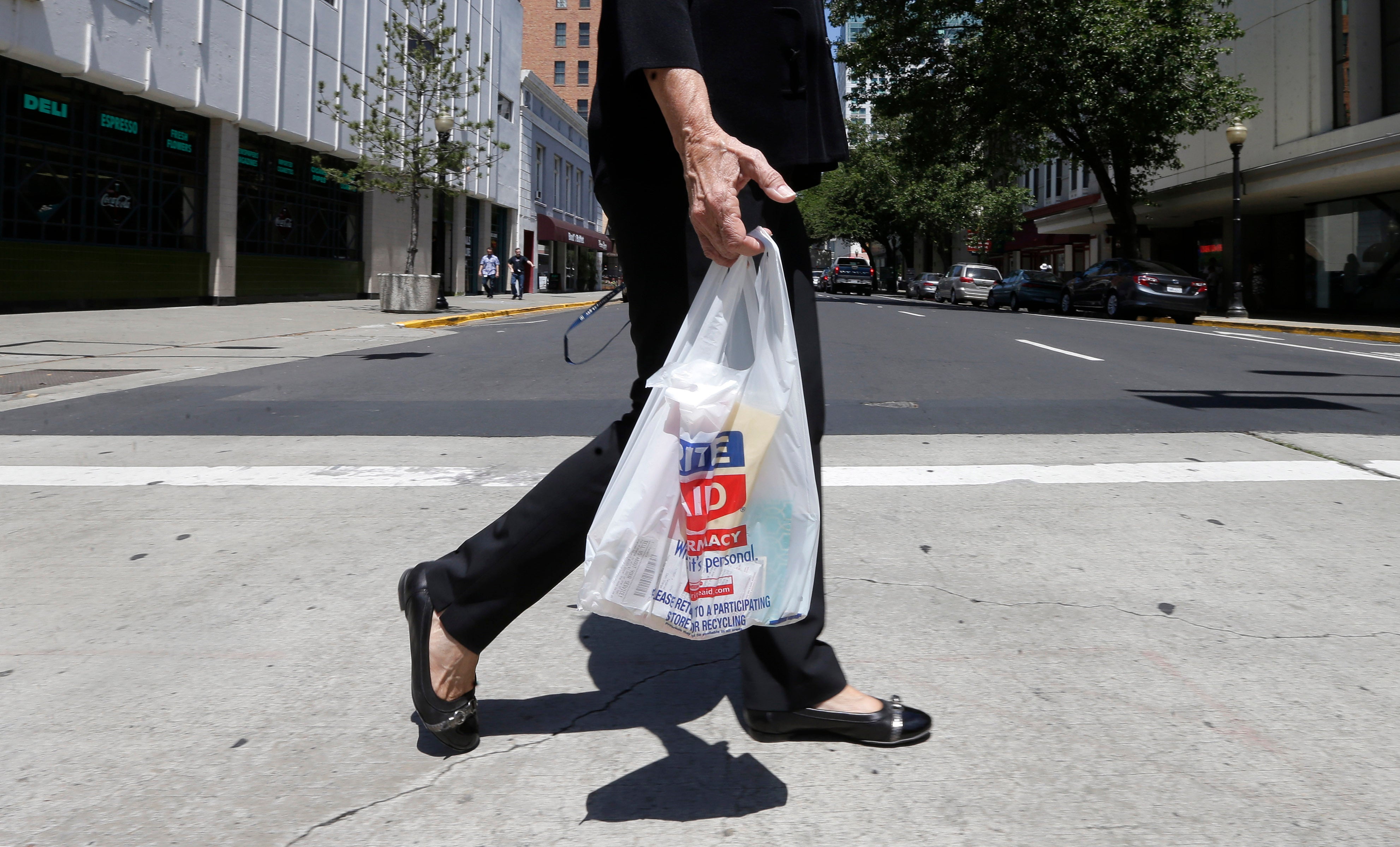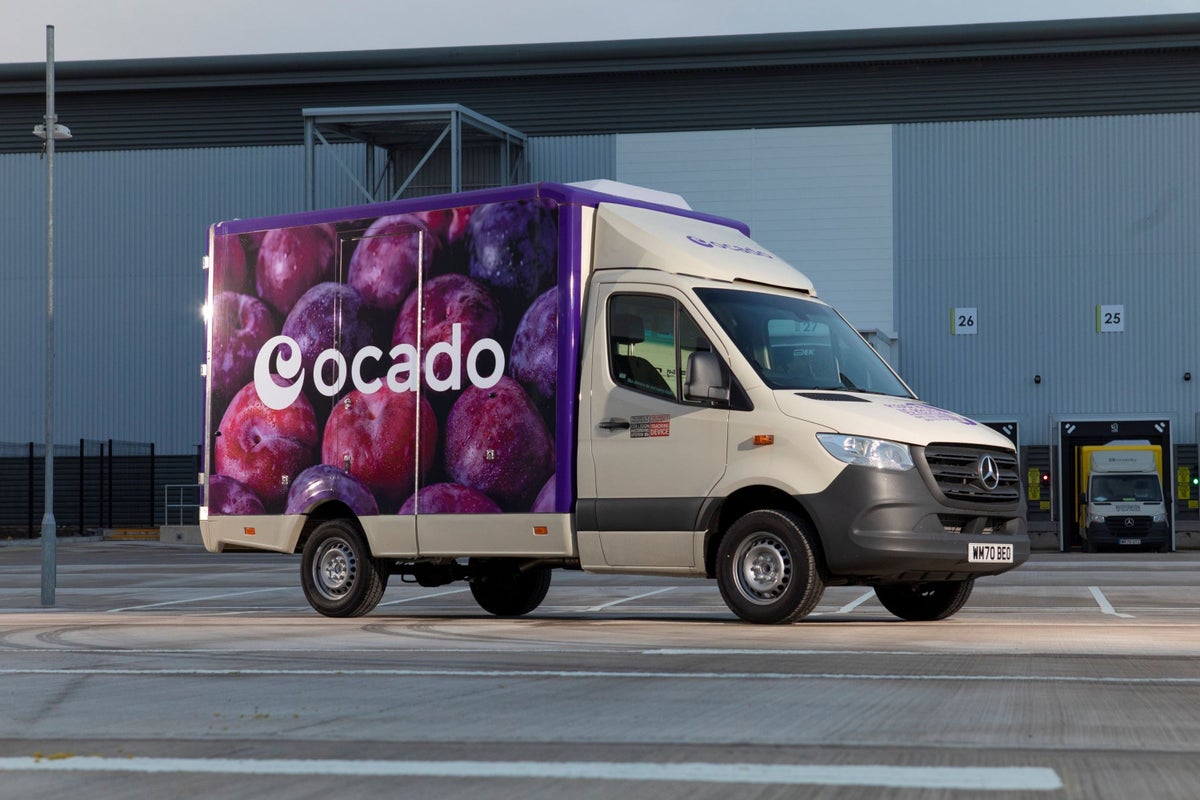Your support helps us to tell the story
From reproductive rights to climate change to Big Tech, The Independent is on the ground when the story is developing. Whether it’s investigating the financials of Elon Musk’s pro-Trump PAC or producing our latest documentary, ‘The A Word’, which shines a light on the American women fighting for reproductive rights, we know how important it is to parse out the facts from the messaging.
At such a critical moment in US history, we need reporters on the ground. Your donation allows us to keep sending journalists to speak to both sides of the story.
The Independent is trusted by Americans across the entire political spectrum. And unlike many other quality news outlets, we choose not to lock Americans out of our reporting and analysis with paywalls. We believe quality journalism should be available to everyone, paid for by those who can afford it.
Your support makes all the difference.Read more
The number of plastic bags Brits are using is on the rise for the first time in a decade – and experts say online shopping is to blame.
New data shows that people in England bought 437 million plastic bags in the past year, up 7 per cent from 407 million in 2023/24. It is the first time the number has risen since the government introduced a 5p charge for single-use plastic bags sold by large retailers in 2015. This was increased to 10p after the pandemic.
Speaking to The Times, waste charity Wrap said the rise in online shopping was primarily to blame for the surge. It said packing methods used by internet retailers frequently made use of single-use carrier bags for at-home deliveries.
Figures released by the Department for Environment, Food and Rural Affairs (Defra) show that the online supermarket Ocado sold 221 million plastic bags last year, the equivalent of 51 per cent of all plastic bags sold in the UK. Ocado said the rise was down to growth in its overall customer base.
The online supermarket added that it had introduced a “closed-loop system” for plastic bags, with 89 per cent of bags used being handed back and recycled.
Supermarkets were responsible for the highest sales of plastic bags overall. The Co-op, Morrisons and Sainsbury’s sold the most plastic bags, with 94 million, 58 million and 11 million sales respectively. All four retailers recorded a rise in single-use plastic bag sales over the past year.

open image in gallery
Single-use plastic bags have been subject to a charge since 2015 (AP)
A spokesperson at Ocado Retail said: “Our approach to deliveries is designed to minimise emissions and waste, while keeping customer orders efficient and products in excellent condition from warehouse to doorstep.
“We were the first retailer to introduce a closed-loop recycling system for plastic bags in 2015, allowing customers to return plastic bags to us – from any retailer – in exchange for a refund, and our current refund rate in bag handback is 89 per cent. Returned bags are recycled and used to produce new bags within our closed-loop system.”
Morrisons told The Independent that it has its own closed-loop recycling process, but said it is moving towards a “bagless” delivery system in more locations.
Sainsbury’s also said that its on-demand delivery services, where plastic bags were previously used, had grown in the last year. The company said it has now replaced plastic bags with paper bags.
A Sainsbury’s spokesperson said: “Our on demand delivery services have grown in the last year and originally used single-use plastic bags. We have replaced these with paper bags and expect our single-use plastic bag sales to reduce significantly in line with this, by the next report.
“All sales proceeds from these single-use plastic bags and profits from our reusable Bags for Life are used to support good causes in the communities we serve and source from.
“Over 50 per cent of the postcodes we deliver to receive their groceries in a small crate, which the customer unpacks and hands back to the driver on the doorstep. In the past six months, we have moved a further 12.5k of our customers to this bagless delivery system.
“The other postcodes are fulfilled by our automated central fulfilment centre, where our customers receive their groceries in recyclable plastic bags – 88 per cent of which are returned and recycled as part of a closed-loop recycling process.”
